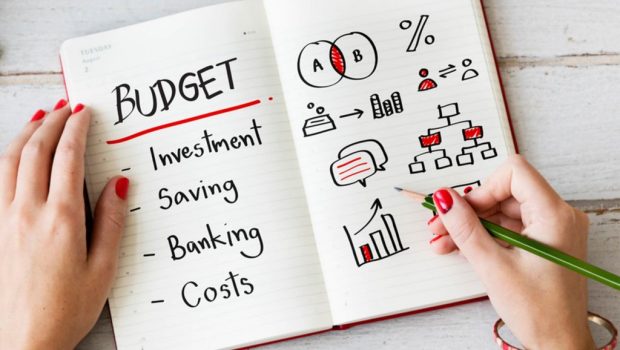11 Practical Steps to Solve Your Financial Problems Without Education
People often say that the more you learn, the more you earn. There is a clear correlation between education and income levels and it is natural to see that the highest-educated professionals earn the most money. But does it mean that individuals with no college degrees constantly have to deal with serious financial difficulties? Absolutely not!
All it takes is willpower and a fair share of strategic planning to eliminate money issues and live your life normally. The beginning is the hardest part of the process, but you will get used to everything very soon.
Our goal is to help you make a good budgeting strategy, so keep reading to learn 11 practical steps to solve your financial problems without education. Let’s take a look!
Identify Pain Points
The first thing you should do is to think about the pain points and identify the sources of financial problems. Most people will immediately say that the problem is obvious – they don’t earn as much as they would like to.
However, this is only the starting point because there are many other details you should consider. For instance, the list of pain points may include:
- Bank loans
- A recent divorce
- New needs such as to buy a car
Each of these issues requires a different approach, so you have to be clear with it and determine the main causes of your financial burdens.
Create a Budget
You can’t expect to solve problems without a proper plan. This is why you must create a budget and plan expenses both short and long-term. Our suggestion is to divide the costs of living into three different units: weekly, monthly, and annual expenses.
- Weekly: Groceries, cosmetics, etc.
- Monthly: Bills, credit card debts, public transport, etc.
- Annual: Taxes
The budget has to incorporate the basic stuff you cannot avoid. If you can make it with your current salary, then you can add more items to the list.
Track Your Spending Habits
Another important tip is to track your spending habits and learn the things you’re doing wrong. This is the only way to improve spending awareness and prevent unnecessary costs that harm the budget consistently. Spending habits can save you valuable able left over allowance at the end of the week or leave you penniless at the end of the month. Using an expense tracker is a really good way to track your expenses and maintain your budgets and not go overboard with spending.
Make a List of Unnecessary Costs
Now that you are tracking spending habits, it is easy to make a list of all costs that cannot be considered mandatory. The number of options is literally countless, but the most common features are these:
- Paying bills for multiple phones, stationary and mobile
- Pricey cable bills
- Various society and gym memberships
- Monthly subscriptions
If you want to make your life easier, you can eliminate these and many other costs.
Try to Cut One Major Expense
Most people consider this advice to be very painful, but it can drastically improve your financial affairs if you make sure to respect it. Here’s a great example – smokers can quit smoking and save a lot of money while improving their health.
We understand this is difficult, but there is no better way to save more money. Another option is to sell your car if you don’t really need it and start using public transport only. It’s a much cheaper option that can help you relax the budget big time.
Pay Off the Debt
You cannot be financially independent as long as you have a debt hovering over your head. But now that you’re cutting costs and eliminating lots of expenses, you should concentrate on paying off the debt as quickly as possible.
Instead of letting it grow and accumulate over time, you can focus all your financial strengths on returning the money you loaned a long time ago. Try to pay off more than the bare minimum and your debt will start shrinking slowly but steadily.
Forget About Impulse Purchases
Saving money is not easy, but you have to do all it takes to consolidate personal finance. One more way to do it is by halting impulse purchases. What does it mean? An impulse purchase or impulse buying is an unplanned decision to buy a product or service, made just before a purchase.
To put it simply, it’s a type of cost that you don’t really need but you could not resist the purchase. Such purchases are genuine budget killers, so you better make sure not to buy anything without planning.
Get a New Job
Perhaps this sounds like a little bit too much, but who says undereducated individuals can’t get a new job? The market is open and employers constantly search for good and reliable workers, so why wouldn’t you test your luck and try to find a better position? If you have a strong skill set, don’t be afraid of experimenting and looking for an employer who will appreciate your knowledge and experience more than the current one.
Think About Freelancing
Do you know that almost 60 million Americans are freelancing? The gig economy is on the rise and you could seize the opportunity to join the growing community of freelancers. It’s a great chance to get a part-time job and start earning some money aside.
The best thing about freelancing is that digital employers need almost every type of worker you can imagine. The largest gig networks such as Upwork or Freelance publish thousands of job announcements daily even for the simplest jobs such as typing and online research. Give it a try and you might find a perfect part-time position for your skills and experience.
Sell Things You Don’t Need
Almost everyone has a bunch of stuff they don’t need. If you are one of these people, we strongly recommend you to finally make use of such items and sell them. Doing so, you will achieve three goals:
- Earn some money aside relatively quickly.
- Get rid of the things you don’t use.
- Realize that you can live normally without many things you considered to be necessary.
Keep Learning
The last tip on our list is a true evergreen. Lifelong learning is getting increasingly popular worldwide because the entire economies keep changing and evolving year after year. In such circumstances, you should invest some time in additional education and earn a useful degree. It doesn’t have to be a college degree, but a practical course or night school diploma would certainly increase the odds of getting a well-paid job.
Conclusion
Undereducated individuals often struggle with financial issues and fight to make ends meet month after month. But it doesn’t have to be like that since all it takes is to think for a while and create a feasible plan of income and expenditures.
We made this post to explain 11 practical steps you could use to solve financial problems without education. It might take you some time to get used to these rules, but rest assured they will make you more stable and financially independent in the long-term perspective.















